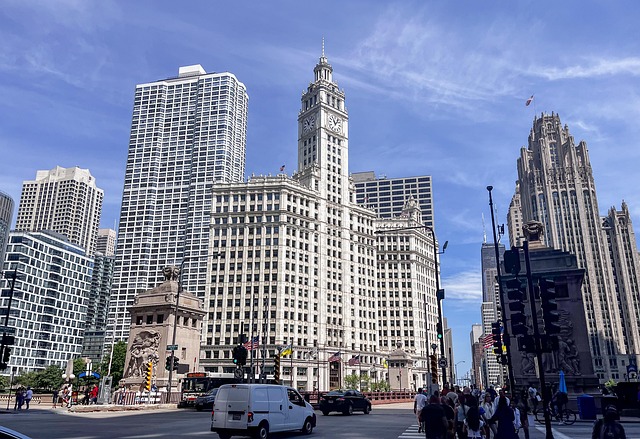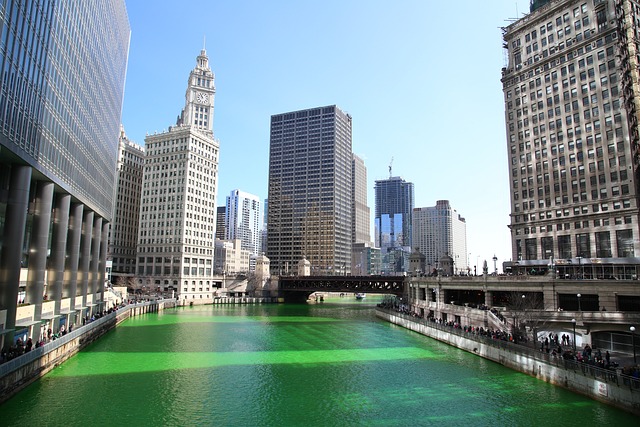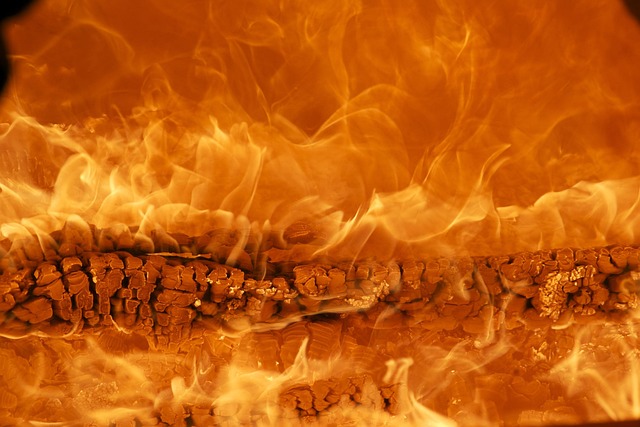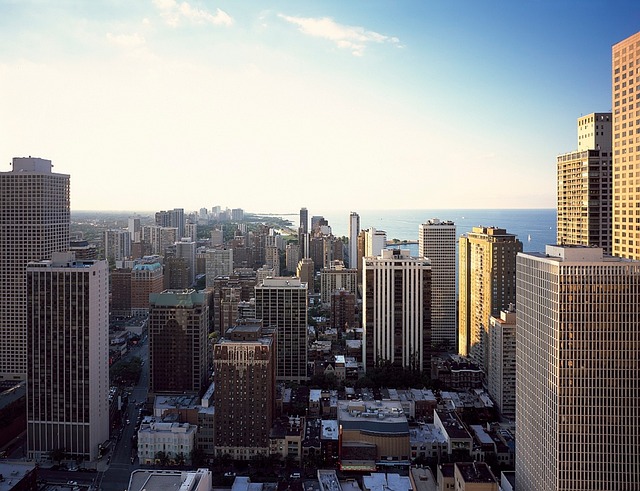The Chicago real estate market, driven by a boom in residential construction and urban living demand, presents unique opportunities for investors. After a fire, strategic planning is crucial for successful sales. This includes assessing damage, engaging professionals, offering competitive pricing, and utilizing creative marketing like virtual tours to maximize returns. Understanding market dynamics and focusing on recovery areas can lead to significant profits, as holding properties post-fire for neighborhood revitalization can result in substantial gains, complemented by potential tax incentives.
Chicago’s real estate landscape offers both challenges and opportunities for investors. This article delves into the dynamic market, providing insights on navigating post-fire real estate sales in Chicago—a unique yet lucrative segment. We explore strategies to overcome challenges and maximize returns, focusing on understanding insurance and restoration processes crucial for successful investment in Chicago’s recovery efforts after a fire. By embracing these opportunities, investors can thrive amidst the city’s evolving tapestry.
- Understanding the Chicago Real Estate Market: Trends and Opportunities for Investors
- Navigating Post-Fire Real Estate Sales: Challenges and Strategies for Investors in Chicago
- The Role of Insurance and Restoration in Selling Your House After a Fire in Chicago
- Maximizing Returns on Your Investment: Tips for Successful Real Estate Investors in Chicago's Recovery Efforts
Understanding the Chicago Real Estate Market: Trends and Opportunities for Investors

The Chicago real estate market is dynamic and ever-evolving, presenting both seasoned investors and newcomers with a unique blend of opportunities. Understanding the current trends is crucial for anyone looking to sell their house after a fire in this vibrant city. Over the past few years, Chicago has experienced a significant surge in residential construction, particularly in its downtown areas. This increase in supply has led to a more competitive market, but also means there are numerous options available for both buyers and sellers.
One notable trend is the growing demand for urban living, with many buyers seeking properties in close proximity to major transportation hubs and Chicago’s renowned lakefront. This shift towards urban density presents an opportunity for investors to capitalize on the rising values in these areas. Additionally, the city’s robust economy and low unemployment rate have contributed to a strong real estate market, making it an attractive investment destination. For those considering selling their house after a fire, timing could be advantageous given the current favorable conditions, allowing them to navigate the market effectively and potentially achieve lucrative returns.
Navigating Post-Fire Real Estate Sales: Challenges and Strategies for Investors in Chicago

Navigating Post-Fire Real Estate Sales in Chicago presents unique challenges for investors, as property owners often face the daunting task of selling their damaged homes. After a fire, properties may suffer significant structural and cosmetic damage, impacting their market value. This can be especially challenging for investors who purchased homes at a higher price before the incident, as they now need to consider strategies to attract buyers and maximize returns on their investment.
One strategy involves assessing the extent of repairs required and presenting the property in its best post-renovation state. Investors should engage with experienced contractors and real estate professionals who understand the local market dynamics. Offering competitive pricing, highlighting the potential for a fresh start, and marketing the property effectively can help overcome buyer hesitations. Additionally, investors can explore creative marketing approaches, such as virtual tours or showcasing the home’s potential for customization, to attract buyers who appreciate the opportunity to reimagine a space.
The Role of Insurance and Restoration in Selling Your House After a Fire in Chicago

After a fire, selling your house in Chicago involves more than just putting it on the market. The process requires careful navigation to ensure a successful transition for both the owner and buyer. Insurance plays a pivotal role in this journey; it provides financial protection and coverage for repairs or rebuilding efforts, making it easier to sell by addressing potential concerns from prospective buyers about structural integrity.
Restoration is another key factor. A well-planned restoration project can increase your home’s value and appeal to buyers. It shows that the property has been meticulously cared for and restored to its pre-fire condition, fostering confidence in those considering a purchase. Chicago, known for its vibrant real estate market, demands attention to detail in such cases, ensuring a smoother selling experience after a fire.
Maximizing Returns on Your Investment: Tips for Successful Real Estate Investors in Chicago's Recovery Efforts

Maximizing returns on real estate investments in Chicago involves understanding the unique dynamics of the market, especially post-disaster scenarios like fires that affect properties. Investors should be attuned to areas experiencing recovery, where demand for housing is often higher due to rebuilding efforts. This presents an opportunity to acquire properties at potentially lower prices and later sell them at a profit after the affected areas have revitalized.
For instance, if you own a house in Chicago that has been damaged by a fire, consider waiting a few years before selling. During this time, the neighborhood might undergo significant improvements, boosting property values. Investors who secure such properties early on and hold onto them until the recovery is evident can maximize their returns, especially when they factor in potential tax incentives for rebuilding efforts post-disaster.
Chicago’s real estate landscape presents unique opportunities and challenges, especially when navigating post-fire sales. By understanding market trends, employing strategic strategies, and leveraging insurance and restoration expertise, investors can successfully maximize returns. When selling your house after a fire in Chicago, staying informed and adaptable is key to thriving in this dynamic recovery effort.






